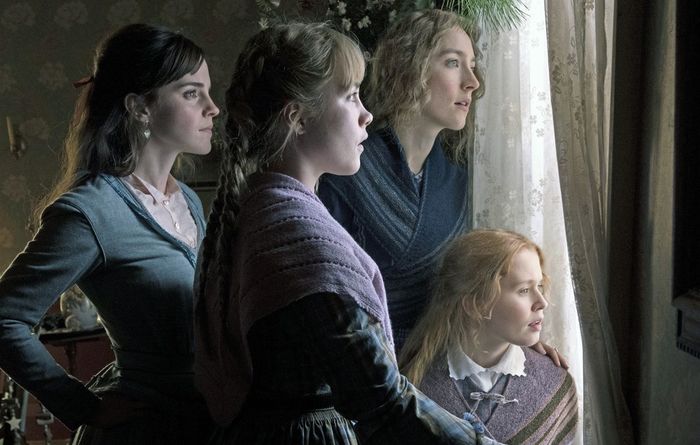Oldie but Goldie? On 2020 Oscar Nominations
Maria Kaminska reflects on the lack of female voices, under-representation of people of color, and favouritism of male-centered narratives on 2020 Oscar shortlists

The dust after predominantly male and white BAFTA nominations hasn’t settled yet, but brace yourself for what comes next! 2020 Oscar shortlists were released on Monday and it seems that the Academy has been sleeping through the last decade. There are no female nominees for best-director, viral hashtag #Oscarssowhite is as relevant as it was in 2015, and good old bio-pic still gives a guarantee of nomination (sorry, Renée Zellweger
Sure, awards have their own rules, but even Academy members should pull their heads out of the Hollywood bubble from time to time. 2020 Oscars follow the inglorious example of Golden Globes and BAFTA, snubbing all performers of colour except for Cynthia Erivo, nominated for the best actress in Harriet.
It’s not that the Academy didn’t have anyone to nominate this year – that's definitely not the case, as we had the brilliant performances of Awkafina in the Farewell or Lupita Nyong’o in Us, not to mention the amazing Parasite team. However, as usual in Hollywood, diversity loses its battle with mediocrity and big names.
The Academy’s inclusivity credentials are also at their lowest when it comes to nominations for Best Director. The all-male shortlist proves that Hollywood still hasn’t learned its lessons from the #metoo movement and keeps marginalising women’s voices. In the long history of Oscars no more than 5 women have been nominated for the best-director, among which only one –Kathryn Bigelow has actually won.
“The Academy has to leave their comfort-zone if they want to keep resonating with the world”
A nod to Greta Gerwig (Little Women), Marielle Heller (A Beautiful Day in the Neighbourhood), or Lulu Wang (the Farewell) would be a sign of change, but sadly it’s still nothing more than a pipe-dream. To wipe away the tears, Little Women was nominated for the best motion picture and adapted screenplay (Gerwig is the only woman in both categories…again!) and Saoirse Ronan and Florence Pugh, who both starred in Little Women, got nominations for the best leading and supporting role, respectively. At the very least, the all white & male standard is mitigated by a nomination for South Korean director Bong Joon-Ho, whose grotesque social satire Parasite earned a total of 10 nominations.
What strikes me the most is that Best Director turns out to be the most conservative Oscars’ category. The absence of diversity is already apparent at the level of the screenplay. All of the shortlisted candidates created features which are mostly violent and male-centred.
Sam Mendes’s 1917 is a classic war drama with two male protagonists, Scorsese’s Irishman follows the life-story of a hitman, Tarantino’s Once Upon a Time in Hollywood is propelled with nostalgia after Old Hollywood in a buddy-black-comedy style, and Philips’s Joker somehow resonate with incel culture, and is this year’s record holder with the overall of 11 nominations. Even Joon-Ho’s Parasite, despite being a thorough reflection on social inequalities, doesn’t skip a fair amount of bloodshed.
The reform of Hollywood would, therefore, require opening up to new voices and stories. The Academy has to leave their comfort-zone if they want to keep resonating with the world. It won’t happen unless obsolete mechanisms of distributing money and attention in the film industry are altered. This year’s Oscar nominations are sadly a step back to the (not so) good old days.
 Features / Should I stay or should I go? Cambridge students and alumni reflect on how their memories stay with them15 December 2025
Features / Should I stay or should I go? Cambridge students and alumni reflect on how their memories stay with them15 December 2025 News / Cambridge study finds students learn better with notes than AI13 December 2025
News / Cambridge study finds students learn better with notes than AI13 December 2025 Comment / The magic of an eight-week term15 December 2025
Comment / The magic of an eight-week term15 December 2025 News / News In Brief: Michaelmas marriages, monogamous mammals, and messaging manipulation15 December 2025
News / News In Brief: Michaelmas marriages, monogamous mammals, and messaging manipulation15 December 2025 News / Uni Scout and Guide Club affirms trans inclusion 12 December 2025
News / Uni Scout and Guide Club affirms trans inclusion 12 December 2025










